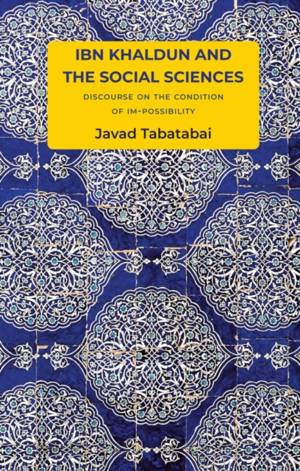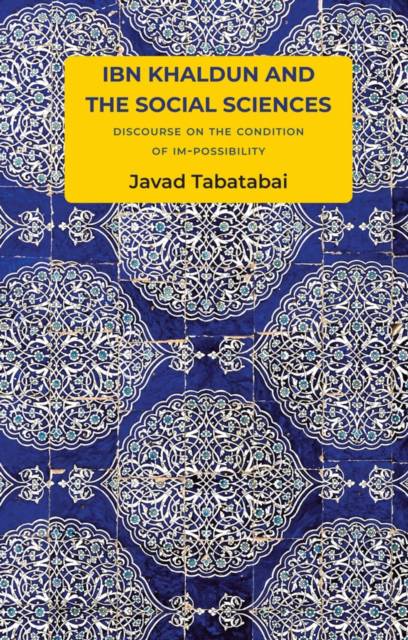
- Retrait gratuit dans votre magasin Club
- 7.000.000 titres dans notre catalogue
- Payer en toute sécurité
- Toujours un magasin près de chez vous
- Retrait gratuit dans votre magasin Club
- 7.000.000 titres dans notre catalogue
- Payer en toute sécurité
- Toujours un magasin près de chez vous
Description
Arabic and European studies of Ibn Khaldun, the great medieval polymath, follow one of two paths. In one direction, scholars interpret his Muqaddimah ('Prolegomenon'), written in 1377, as the point at which the new social sciences emerged. They identify Ibn Khaldun's 'new science of culture' as sociology or as an 'Islamic' alternative to sociology. In the other direction, the interpretation of Khaldunian discourse is confined to the Islamic-Aristotelian paradigm of its time. The epistemological novelty of the Muqaddimah is dismissed and the science of culture is perceived as a minor contribution to the Aristotelian curriculum.
Charting a different path, Javad Tabatabai's highly original book is an enquiry into the condition of the im-possibility of the social sciences in the Islamic-Aristotelian paradigm. It theorizes the condition of im-possibility of the 'scientific revolution' as the 'epistemic obstacle' to modernity in Islamic civilization. This theorization revisits Michel Foucault's discussion of the condition of possibility of the human sciences in light of the history of Christian-Aristotelian thought and the broader French debates about epistemology from Bachelard to Althusser.
Javad Tabatabai offers a critical theory of tradition and modernity in the Middle East, elaborating on a historical situation where social and human sciences emerged by way of colonial and post-colonial translations of discourse from Europe, and in a historical and epistemological break with inherited traditions of knowledge. In this situation, Tabatabai highlights the significance of reactivating Ibn Khaldun's critical reckoning with the limit of inherited traditions as the political-theological horizon of renewal.
Spécifications
Parties prenantes
- Auteur(s) :
- Editeur:
Contenu
- Nombre de pages :
- 414
- Langue:
- Anglais
- Collection :
Caractéristiques
- EAN:
- 9781509551354
- Date de parution :
- 07-01-25
- Format:
- Livre relié
- Format numérique:
- Genaaid
- Dimensions :
- 157 mm x 234 mm
- Poids :
- 635 g







